Interview with Wilhelm "Willy" Tels., veteran of the 24th Waffen Mountain Division of the SS 'Karstjäger', Gratz, 1983.

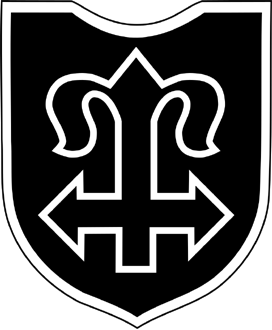

Interview with Wilhelm "Willy" Tels., veteran of the 24th Waffen Mountain Division of the SS 'Karstjäger', Gratz, 1983.



Thank you for agreeing to meet with me, can I start by asking you how you ended up joining the Waffen-SS?
Willy: My family comes from Danube Swabians [a term for the ethnic German-speaking population who lived in Hungary in east-central Europe] and we lived close to Pancevo, Serbia. I was raised a farmer and drafted into the Royal Yugoslav Army in 1941, prior to the German invasion. I remember seeing the armored cars coming through our area, and marveling at the black uniforms the soldiers wore. My unit surrendered at our barracks and were treated very well, since we were fellow Germans we ended up being released and sent home with flyers about enlisting in the Wehrmacht.
Most all soldiers of the Royal Armed Forces were released. I must tell you about something that shaped my mind. In Pancevo there was already talk of a partisan war on the Germans by the communists. We knew many of them; they openly spoke out against the Germans, and began targeting those of German decent. In the town a family was killed along with German soldiers who stayed with them. The German leaders brought in SS police to hunt for the guilty and their families turned them in. They belonged to a large group of communists and anarchists who believed in violent overthrow and terror.
The main leaders were shot and the lesser followers were hung as a sign of their criminality. I was impressed with the SS men and how they were matter-of-fact, a clear sense of right and wrong, and acted very upright. I liked this, and they spoke with our leaders about forming home guards to defend our towns and people against communist attacks. They told us the Allies were working to arm and train communists and anarchists to fight against Germany. This made many fearful that a new kind of war was being forced on us.
We listened on June 22, 1941 when Germany and its allies attacked the Soviet Union, the next day a German farmer was shot nearby while tending his cows, he told the police the shooter yelled 'long live Moscow' and ran off. This put in motion calls to form home defense for every town and settlement. Attacks were now becoming more frequent on anyone of German decent; a young lady was attacked and beaten by men who wanted her to know all Germans would pay. The act that finally drove me to join the fight was on my sister who was only 15.
She was coming back from Pancevo on her bike and was attacked by two men who robbed her of her money and earrings. They tried to rape her, but a farmer happened on the scene and drove them away with his shotgun. She came home terrified and could not stop crying. The men told her all Germans would hang for betraying Moscow and the revolution. Police and men from the SD [Sicherheitsdienst, or Security Service] came to interview her. They got her a doctor of the mind [psychiatrist] and this helped her. An SD man said it was foreigners who were hiding in the area and getting aid from communist partisans. They were preying on the weak.
I asked my father for permission and he agreed I could join. I gave up the farm and went to enlist. I was surprised to see many men had already beat me. We had to provide our own weapons at first, but the Germans did put out requests in the Ostmark [Austria] for people to provide any unused rifles to us, this gave us a few more. I happened to get an old WW1 era Mauser. This happened at the end of 1941 and in the defense force it was mostly quiet until the SS came in with an idea to form us into an SS hunting unit. We were to go after partisans who were active and hiding in the mountain areas. This was in late 1942, and with this order, I was sent to the SS barracks in Dachau.
What did you see at the Dachau camp?
Willy: I was never in the actual camp, I must be clear. I saw the prisoners on a daily basis, and they all looked healthy and well-fed. The Dachau area was a large SS barracks that held training and supply areas for the SS divisions, mainly the Totenkopf and partisan hunting units. I took my oath to the Führer there and got to see parts of Munich. We were taken to the Oktoberfest celebrations; saw the Ehrentempel, and Feldhernhalle, sites important to the SS and the National Socialists.
Around the complex, the prisoners who were low risk were allowed to work around the barracks, cleaning, cooking, and mending. I spoke to a fellow from my area who was in the camp for hiding a friend who was wanted by the police for sabotage. He seemed to hold communist beliefs, but I was friendly to him, and he was the same. He was assigned to clean the grounds around our barracks. I asked how he was treated, and he said he could not complain, but would rather be home. He was given a three year sentence under wartime law. I do not believe the stories told today about the camps.
I was able to meet many men serving in the SS Totenkopf Division, and saw some combat veterans of the east front. We would spend hours talking to them about what it was like. I was particularly interested in the German communities in Russia; according to the officer I was speaking to, he said many had been wiped out. The Soviets forced them to Siberia or killed them when the invasion happened. He said as they moved through the areas, many who had hidden in the woods came out and welcomed them as liberators. It had been terrible for any Volksdeutsche [ethnic Germans] in the east.
The east front seemed endless and forlorn, but he told us that the Russian people were good to them, and welcomed them as their liberators as well. The only ones who did not were the partisans who were communists anyway. One NCO told us they had a hard time with them, and special action units were formed to hunt them. The Russians also formed defense forces to hunt them down as well, as they preyed on anyone who was not for them, killing many civilians. This was an omen of what was to come for us. We really enjoyed our time listening to these comrades, and they gave us valuable lessons.
Our time in Dachau was over and we were sent to mountain training in the Ostmark [Austria].
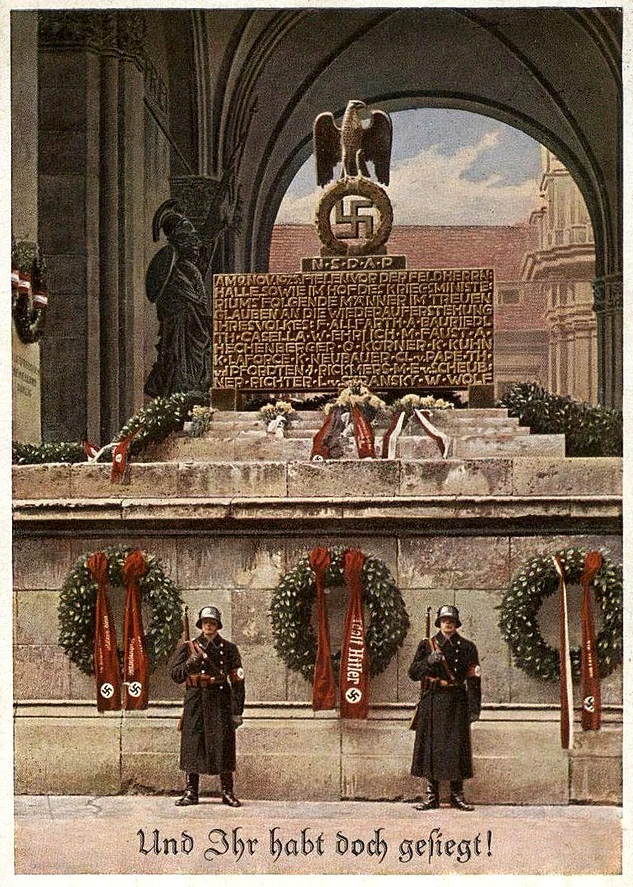
[Above: SS guards at the Feldherrnhalle, Munich, 1933.]
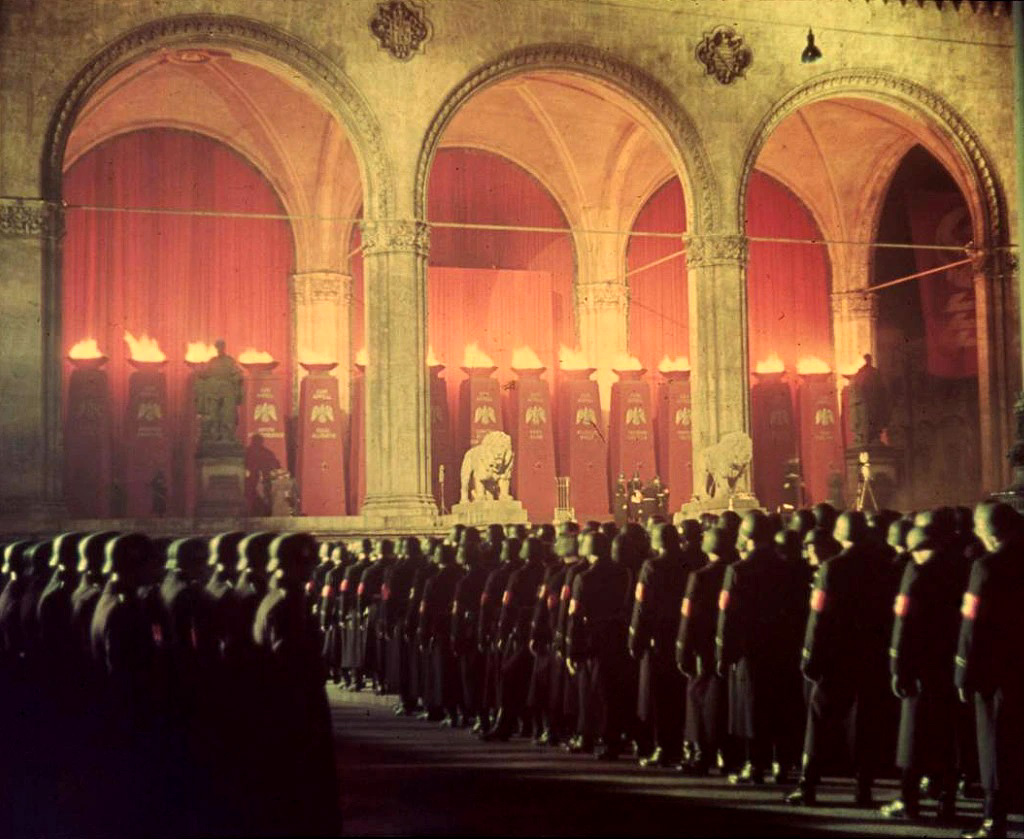
[Above: Annual gathering of the midnight swearing-in at the Feldherrnhalle of SS men (1938). Here they would swear an oath of loyalty to Adolf Hitler. The solemn oath read:
'I vow to you, Adolf Hitler, as Führer and Chancellor of the German Reich, loyalty and bravery.
I vow to you and to the leaders that you set for me, absolute allegiance until death. So help me God.']
What was your training like?
Willy: It was hard training as far as work, but we were kept in a quiet area that allowed for a lot of relaxation as well. We were reading that things back home had settled down, more police and army units had been brought in, and many suspected partisans had been captured, and sent away. I saw that men from all over the areas were coming together to fight the partisans, a small civil war was being fought in the region, something the Germans were careful to not inflame.
We were named the SS Karstwehr-Kompanie, and had a leader assigned to us, Hans Brand. He was a very good leader, and knew all about caves and mountains. He sometimes led our training, and made sure we were all paying attention by asking pop questions while marching or relaxing. We starting receiving special equipment for our jobs, I remember having a restless feeling of wanting to get at the partisans.
Our leaders instilled in us a sense of confidence and trust; we knew we could count on each other. I had a firm sense of duty, and knew we were on the right side, fighting for the best that was in us. Those were the days; we had a love of life and looked forward to what Europe would become after our victory over the ungodly scourge of communism. What dreams we had.
What was your first action against the partisans like?
Willy: The first action I was in was in the Camporosso and Tarvisio areas [Italy]. The area had come under partisan attacks, one being a train that was carrying passengers. They shot at it with machine guns and hit a young woman who lived, then robbed the people like gangsters. They are supposed to have told them the money was for the red revolution. Our battalion was sent in, along with dogs we trained with. The partisans took to the hills and were hiding in caves. We had to shoot it out with them, but the dogs were very good at surprising them, and scaring them out firing wildly, we shot them as they ran out.
We did capture a few of the partisans, and these people came from all over Europe, we got a Frenchwoman, a Spaniard, a German, Italians, and a Russian. It surprised me that so many Italians had turned to the communists; there was a deep split in the people. Mussolini did great things for his nation, but to the reds, it meant nothing. We turned them over to the police for processing and punishment.
In these actions against this group we had our first losses, and our medical unit was very busy. This was our first taste of combat, and from here on it was a constant fight, month after month. During this time, we also had to disarm our Italian comrades, and they could either join the cause or go home. Some were so tired of the war, they deserted before this, and some chose to turn in their weapons and go home. The majority chose to aid us, and were loaded on lorries to go refit, there was talk of forming Italian SS units.
The people were very glad to see us, we were the first German units in the area for a while, and the partisans had been running wild. They were acting more like gangster criminals rather than freedom fighters. They would rob businesses, take hostages, and kidnap children to get payments. They also would go on to have a darker side later in the war, turning any sentiment against them.
We settled into this general area, and worked with sister divisions like Prinz Eugen and local defense forces. We camped in tent cities outside towns, and were always invited to come and stay with families who cooked dinners and hosted parties. The girls were always putting on their best traditional outfits when the soldiers of the SS came to visit. However, I will tell you we had very strict orders from Brand to respect civilians, especially the girls. We had to have permission from the parents to even write to them.
I want to tell you too that it is not true we were hated by the people, in fact they begged us not to leave in every area we stayed in for fear of attacks by the communists. Today the papers report all sorts of lies being told by these snakes. They say we did awful things to people, that we burned villages, raped, looted, and stole. Not to mention the claims of hate killings towards the gypsies and Jews. None of this is true; I'll show you a photo of a gypsy family that came to us for protection against robbers.
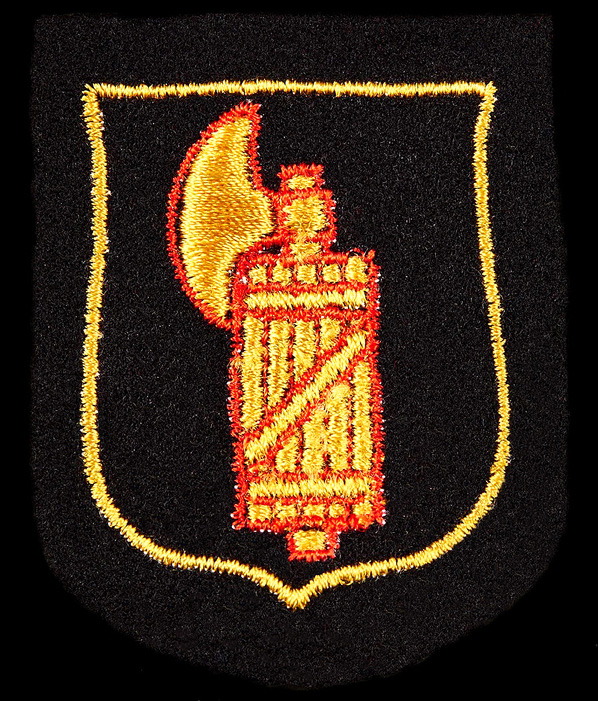
[Above: Waffen-SS Italian shield patch. On November 23, 1943 the first Italian volunteers were sworn in, and thus the 29th Waffen Grenadier Division of the SS (1st Italian) or Legione SS Italiana, also referred to as just 'Italia', was born.]
What about all the claims made by the Allies that the Waffen-SS was a criminal organization?
Willy: As I said, these are lies. The Western Allies did not fight us, only the communist partisans did. They were allies of Soviet Russia and had their propaganda machine to aid them. The Western Allies sent them material and soldiers to train them, but their orders came from Moscow. What they fought for was the creation of a Soviet-style government in the Balkans, this they achieved. Countless victims are long forgotten, forgotten because they dared side with us. They paid with their fortune and lives.
I saw so many crimes committed by the so-called freedom fighters that it truly disgusts me to see them being made into heroes today. They are given monies, have things named after them, and are honored for their sacrifice and service. We get nothing but scorn, and threats of persecution. I saw with my own eyes, the throats of captured SS men slit by these evil men, yet nothing is spoke of this today.
I saw the aftermath of my men who had been captured by these animals; they were tortured, killed, and then mutilated. Only a product of the devil can do these things. They cut off their heads and stuck them on their bayonets. I saw a family who had been helpers of ours, they were all shot, the women raped, and the little girl showed signs of abuse before dying. The men who did these things were caught, and our anger was so great we exacted revenge on them as prescribed by the Bible. They were taken away and an axe used on them as a way to cleanse our souls of the pain we felt.
It was hard to do, but I then fully understood [Reichsführer-SS] Himmler's talks about how cruel and vile our enemies are, and how we must be hard, to not let their deaths affect our minds. We had to execute men who were believers in an evil idea, and who used their fervent fanaticism to commit horrid crimes. We had to punish these men, and punish them in a way that deterred anyone else from acting in the same way. We wanted to send a message to their leaders, so their heads were left where they would see them. This may seem cruel and equal to our enemies, but this type of war demanded retribution and revenge for acts of cruelty.
This truly was the only time I ever saw SS men, or any German ally do anything like this. Usually our war was humane in the face of cruelty. The partisans would take prisoners and then trade them back to us for money or fighters we captured, so we kept many prisoners. It was not our goal to execute anyone without proper justification, even erring on the side of caution. I remember a time when a young boy, maybe 12, was caught trying to cut phone lines. Our stocky and burly NCO took the boy, bent him on his knee, and spanked him very hard. He then showed him his rifle, with real bullets, we laughed, but his message was that this is a real war where he could die. We then sent him on his way with a look of terror on his face.
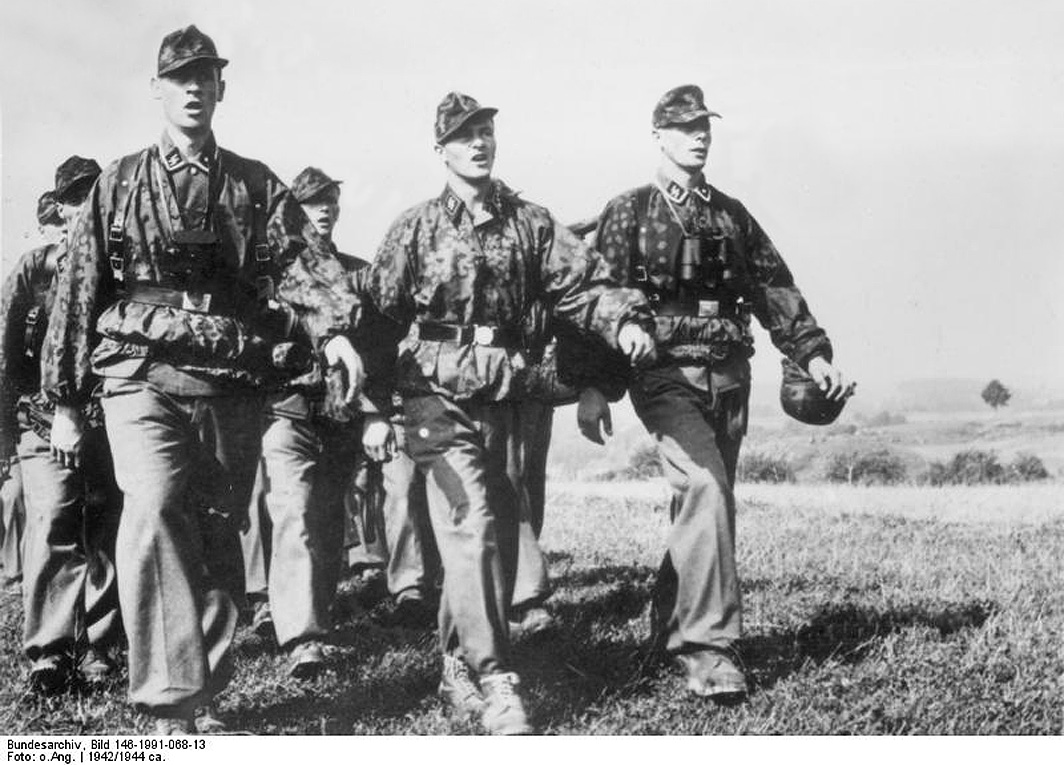
[Above: The brave men of the SS-Karstwehr-Battalion, 1942.]
What type of weapons did you have as an SS unit?
Willy: At first, we had only what we could find, requests had to be made for civilians to let us use their firearms, but they were returned. I remember the local party leader had men come and take them back to the people who let us borrow them, we had to write nice little letters and attach them, saying thank you for letting us train with them. Once Himmler made the order for us to form into an SS unit we received large quantities of captured weapons. A large part being captured Italian weapons.
Our division had cannons from France, Russia, and Balkan nations. We received Italian tanks that I was trained on as a gunner in 1944. I was happy to be moved to the Panzer arm of our division, but the Italians could not build good Panzers. They were not suitable for our terrain, and broke down often. I spent more time having to work on them than I did fighting in them. We had some German machine guns, the MG 34, later the MG 42 that put lots of fear into our enemies.
We had a dog platoon, which was very effective in tracking and trapping partisans. One dog in particular was outstanding, and even given an Iron Cross for his bravery. We had advanced radios, which were needed in the mountains, and of course mountain climbing gear. We had a good time transporting artillery up the slopes sometimes. The partisans were ingenious at how they created hideouts; these had to be shelled many times.
We had a Panzerjäger [tank hunter] unit, they trained to fire on caves, and knock out vehicles the partisans stole. Our Panzer commander was Ustuf Behrend who came from the Panzerjägers if I remember. We would work very closely with all companies in the division. We even had one mountain company that was mostly Spanish. We called their leader Orti, and he was very brave and good with a rifle, he won shooting contests. The KWB [Karstwehr Battalion] had men from all over Europe who volunteered, and from every SS division. My friend Uli came from Der Führer [4th SS Regiment] and refused orders to remove his cuff title.
He said the Führer meant everything to him, and it would be a disgrace to remove his name from his sleeve, our Spiess [German military slang name for the Company sergeant major] just shook his head and walked away saying he could not argue with that. The fact he wore the Iron Cross also gave some weight to the argument too.
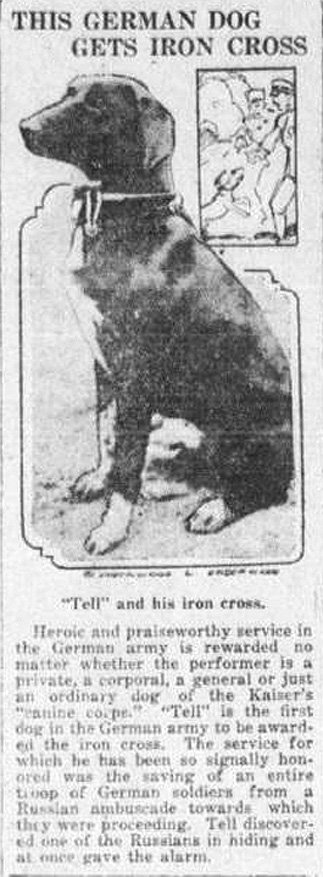
[Above: The awarding of an Iron Cross to a dog wasn't anything new in the German military. Here is an article from 1915 that tells of another dog being awarded the Iron Cross. It says:
'Heroic and praiseworthy service in the German army is rewarded no matter whether the performer is a private, a corporal, a general or just an ordinary dog of the Kaiser's "canine corps."
"Tell" is the first dog in the German army to be awarded the Iron Cross. The service for which he has been so signally honored was the saving of an entire troop of German soldiers from a Russian ambuscade toward which they were proceeding.
Tell discovered one of the Russians in hiding and at once gave the alarm.']
Willy: Yes I was, it was during raids on a pass that the partisans had gained control of. They were launching ambushes on our supply trucks and we had to go in and stop these. They were well-hidden, and used villages for their bases, forcing the inhabitants out. We laid a trap for them, and when they attacked, we attacked driving them back to where they had a hideout. I was without a working Panzer, so was used as infantry, being hit in my leg by a machine gun round. It went clean through, but I was in pain.
I was still able to return fire to the window where I saw the barrel and showed our pioneers where to attack. They threw in grenades killing the shooter and his helpers. It set the home on fire, and later our unit burned down other homes hiding weapons to deny them to the partisans. I was given the Black Wound Badge and Iron Cross Second Class for this action.
Do you feel the German way of fighting the partisans was justified?
Willy: I think in the end it will become known that our side fought with honor and humanity. The press sets the topics and controls how it is spoken of. Today they tell the story that we were criminals, who fought a criminal war, and when challenged by righteous fighters we overreacted and killed innocents. Indeed, I have to admit that innocent people sometimes were caught in firefights; they were more victims of circumstances. The partisans chose to fight in towns, not us; we had to clean them out.
I will tell you we were not like the partisans; we abided by laws and had very strict orders to avoid civilian casualties. The only times we saw civilians killed or injured was when the partisans ambushed us in a village or town, and we returned fire.
Sometimes they could be caught in the crossfire or a victim of a grenade not meant for them. The partisans used them as shields several times, and we did not know until after. We were very cautious when fighting, but at times, we had to worry more about us.
We worked hard to make sure the people saw us as their protectors; we went out of our way to watch for them, and remove them from any areas of battle. That, I am proud of, but as I mentioned, the partisans rarely did this, and seemed to go out of their way to involve civilians. Then blamed their deaths on us as if we executed them, it made for good propaganda.
What happened to you at war's end?
Willy: Our last task was to hold open a pass for all the retreating units to get back to German territory. We had mostly defeated the partisan threat in our zone but the Soviets were directing more outsiders to come and fight. We knew the war was lost, the newsreels we saw were honest, and all could see that by 1944 victory would have to come through a miracle. We had our oath and honor to uphold, so we fought on, and we held open the escape route for hundreds of thousands to reach safety.
We heard about the terrible attacks on civilians that were happening by the partisans, our area was kept free, but the Soviets got some above us that wreaked havoc on the refugees. We received word the Führer had fallen and from then on, we retreated seeking to surrender.
We met British soldiers, who by now were greatly relaxed. At first, we were to be returned to the Soviets, and many men escaped and fled from our camp, I was one of them. I saw what their 'justice' would look like. My family escaped to Germany and I was able to convince Americans I was a drafted soldier so I was issued a pass and left alone.
I was found out, but by then cooler minds prevailed and the crimes of the partisans were becoming known. Most of us were left alone, but today the call is getting louder to come after the survivors. I am afraid it will get worse, already reunions are being attacked and the papers preach hate daily against anyone who served National Socialist Germany.
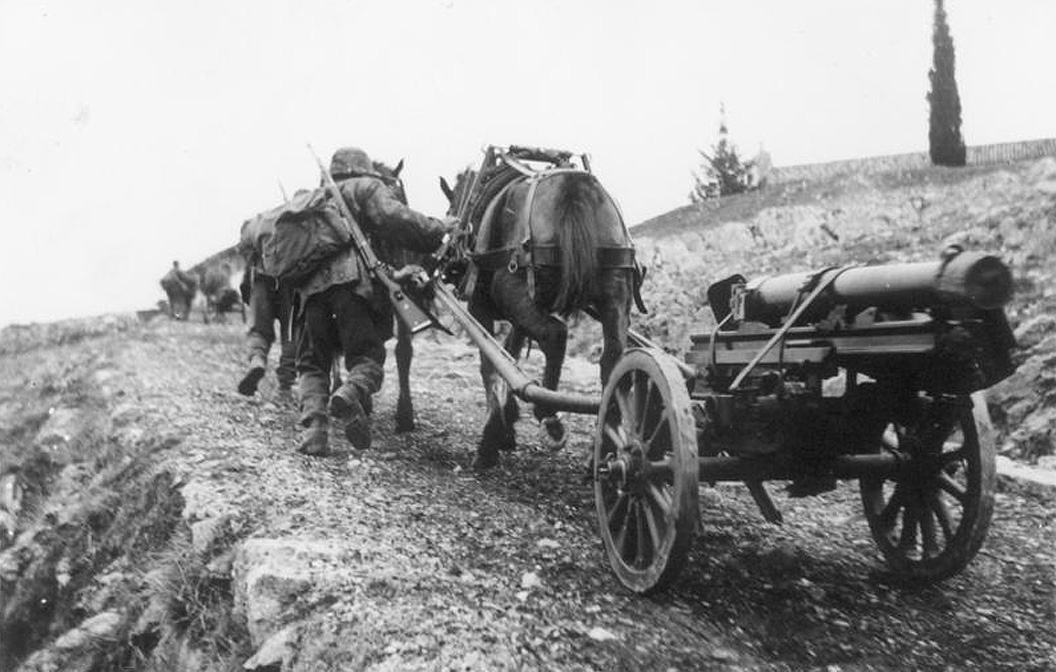
[Above: The Karstwehr Battalion conducting artillery training.]
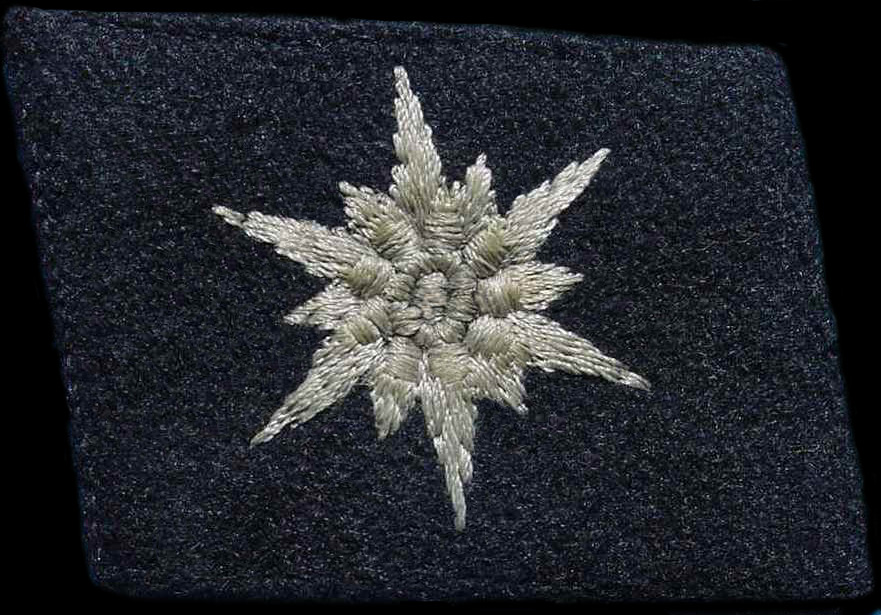
[Above: SS Karstjäger Edelweiss collar tab. The Edelweiss was the symbol of German mountain troops, 'it is a high altitude flower and is rare in that it tends to grow in places that people can't get to very easily... the Edelweiss is often associated with love and courage.
Many folktales tell of men climbing dangerous mountains to pick Edelweiss as a sign of love to their beloved. This act symbolizes sacrifice and dedication, making Edelweiss a symbol of true love and courage.']

[Above: SS Karstjäger cuff title.]